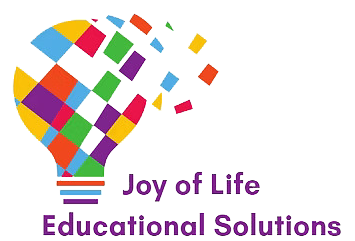Classrooms

Administration of
Medication
This course covers safe medication administration, including guidelines, documentation, and communication for both prescription and over-the-counter medications.

Age Appropriate Activities for Preschool & Toddlers
This training helps educators and caregivers create play-based, developmentally appropriate activities to support young children’s growth, creativity, and social skills.

Assessment and Observation in Early Childhood
This training helps early childhood educators improve assessment and observation skills to track children’s development, inform teaching, and communicate progress to families.

Anti-Bias Practices
in the Classroom
This course helps educators create inclusive, equitable learning environments by addressing biases in early childhood settings through anti-bias education.

Awareness and Sensitivity in Children with Special Needs
This training raises awareness of various special needs and equips educators with practical, inclusive strategies to effectively support all children’s diverse learning needs.

Bloodborne Pathogens
This course thoroughly covers bloodborne pathogen risks, environmental hazards, disease prevention, and essential universal precautions in childcare settings.

Building Trust and Respect in Business
This course helps childcare professionals and administrators build trust, foster mutual respect, and strengthen relationships within the early childhood education field.

Caring for Children with Special Needs
This course teaches techniques to support children with physical, intellectual, developmental, and behavioral/emotional disabilities in childcare settings.

Caring for the Caregiver
This course helps caregivers recognize signs of burnout, explore practical self-care strategies, and understand how mental health directly affects productivity in both classroom and home settings.

Childcare Laws and Regulations
This course supports childcare workers, owners, and future administrators in understanding state-regulated childcare laws, licensing requirements, and compliance standards essential for effective program management.

Classroom Management: Children with Special Needs
This training emphasizes planning, patience, and to support children, reduce teaching stress, and highlight the value of family engagement in early childhood classrooms.

CPR/ First Aid
This course trains participants to handle breathing, cardiac, and first aid emergencies, meeting OSHA standards and earning a two-year Red Cross certification through engaging, in-person instruction.

Crucial Conversations in Childcare
This training equips childcare providers and case managers to navigate tough conversations professionally, emphasizing how communication impacts outcomes and supports.

Cultural Diversity in Childcare
Participants will explore the value of cultural diversity in childcare and gain practical, inclusive, effective, engaging strategies to support teaching diverse cultures and understanding children’s unique learning styles.

Developing Social Emotional Skills
This course equips early childhood teachers with tools to support social-emotional development, helping children build empathy, self-control, friendships, and manage challenging behaviors.

Effective Teaching Strategies for Infants, Preschoolers and School Age Children
This course offers strategies for all age groups, enhancing classroom management, child development understanding, behavior guidance, and effective lesson planning.

Emergency Preparedness and Response Planning
This course prepares participants to keep children safe during emergencies through planning, response strategies, and effective communication with staff, parents, and children.

Exploring Curriculum
This course explores various Early Childhood Education models, enhancing participants’ understanding of child development and effective teaching strategies to support young learners’ growth.

Field Trip Safety
This course supports childcare providers, teachers, directors, and chaperones by teaching safe practices to ensure children’s safety and well-being during field trips.

Food Allergies: Understanding Allergic Reactions
This training equips childcare workers to manage food allergies, understand common allergens, distinguish intolerances, and create inclusive, safe environments for all children.

Goal Setting
This course helps professionals set clear goals, stay focused, and maintain motivation—especially useful for those who multitask or struggle with boredom in tasks.

Leadership
This course strengthens childcare providers’ leadership skills, fostering a growth mindset, strategic execution, confident collaboration, effective delegation, and accountability in management.

Let's Talk Professionalism
This training enhances workplace professionalism, helping teachers and childcare providers develop skills in communication, appearance, and best practices while maintaining a strong, business-minded approach.

Mandated Reporting
This training provides participants with essential information on Michigan’s Mandated Reporting Requirements and Child Protection Law to ensure compliance and promote child safety and well-being.

Marketing Strategies for Centers
This course prepares current and future childcare administrators with marketing strategies and essential skills to build, sustain, and grow a successful, long-term childcare business.

Multi-Sensory Learning Environments
This course explores multi-sensory learning, helping participants support visual, auditory, tactile learners through engaging environments, lesson plans, activities enhancing development.

Poison Prevention
This training raises awareness of poisoning risks. Participants learn safe medication storage, chemical handling, and hazardous material practices to reduce poisoning risks in young children.

Prevention of Shaken Baby Syndrome
This course teaches Shaken Baby Syndrome prevention, its risks, causes, abuse signs, brain injuries, and managing stress while caring for infants and toddlers

Project Planning & Delegation
This training helps participants develop key skills in project planning and delegation within childcare settings, enhancing focus, organization, and effective task distribution for success.

Promoting Positive Behaviors
This training supports providers in promoting social-emotional learning to build, model, and maintain positive behaviors, fostering a healthy, responsive classroom environment for children.

Safe Sleep- Sudden Infant Death Syndrome
This training promotes awareness of Safe Sleep and SIDS, teaching participants how to safely care for sleeping infants and take preventative measures during emergencies.

Screen Time
This course helps childcare providers understand screen time’s impact on early brain development and supports informed decision-making as screen use trends among young children.

Strengthening Families
Framework: for Families
in Early Childcare
This course introduces the Strengthening Families Framework, helping providers support families and build resilience through protective factors.

Supporting Children (K-5)
Through Virtual Learning
This course helps teachers, providers, and parents support academic growth using technology, offering methods to engage children online for focus, learning, and retention.

Time Management
This course teaches time management strategies to help individuals maximize productivity, prioritize tasks, and use their time more efficiently in both personal and professional settings.

Transporting Children Safely
This course helps participants understand safety guidelines for transporting children, focusing on minimizing risk and following proper procedures and policies in childcare settings.

Understanding Abuse and Neglect: Physical/ Sexual/ Emotional
This course teaches Michigan’s abuse and neglect definitions, helping providers recognize, respond, and report appropriately.

Understanding Autism
This course introduces Autism Spectrum Disorder, helping participants understand what it means to be autistic and how to support communication, emotions, and inclusion in the classroom.

Understanding Challenging Behaviors
This training supports providers in understanding challenging behaviors in young children and building effective strategies for positive classroom management.

Understanding Child Development
This course explores child development from birth to age 12, focusing on brain development, social interaction, trauma response, and strategies to support early childhood growth.

Understanding the CDC Handbook
This training provides updated policies and procedures from the State of Michigan’s Child Development and Care Handbook, ensuring compliance with current regulations and best practices.
